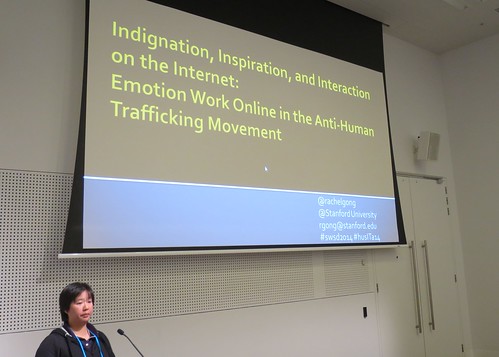Paper presented at #husITa14 in Melbourne, Australia, July, 2014.
Presenter
Rachel Gong (Stanford University, USA).
Abstract
The web offers digital activists a rich setting for emotion work, facilitating evocative story-telling and offering easy and immediate opportunities to engage in symbolic action. This paper uses data from interviews with activists to analyze how emotion work is done online, including using statistics to generate personalized moral shock and telling survivor stories to demonstrate efficacy and create hope for social change. Furthermore, the web, especially social media, facilitates global interactions between activists, state actors, and end users that build networks and sustain the movement. A positive unintended emotional consequence of such interactions is that activists working in the field draw encouragement and motivation from users at home.
Powerpoint
[slideshare id=36935318&doc=sat2171420rachelgongv2-140713210203-phpapp01]
Back to programme

